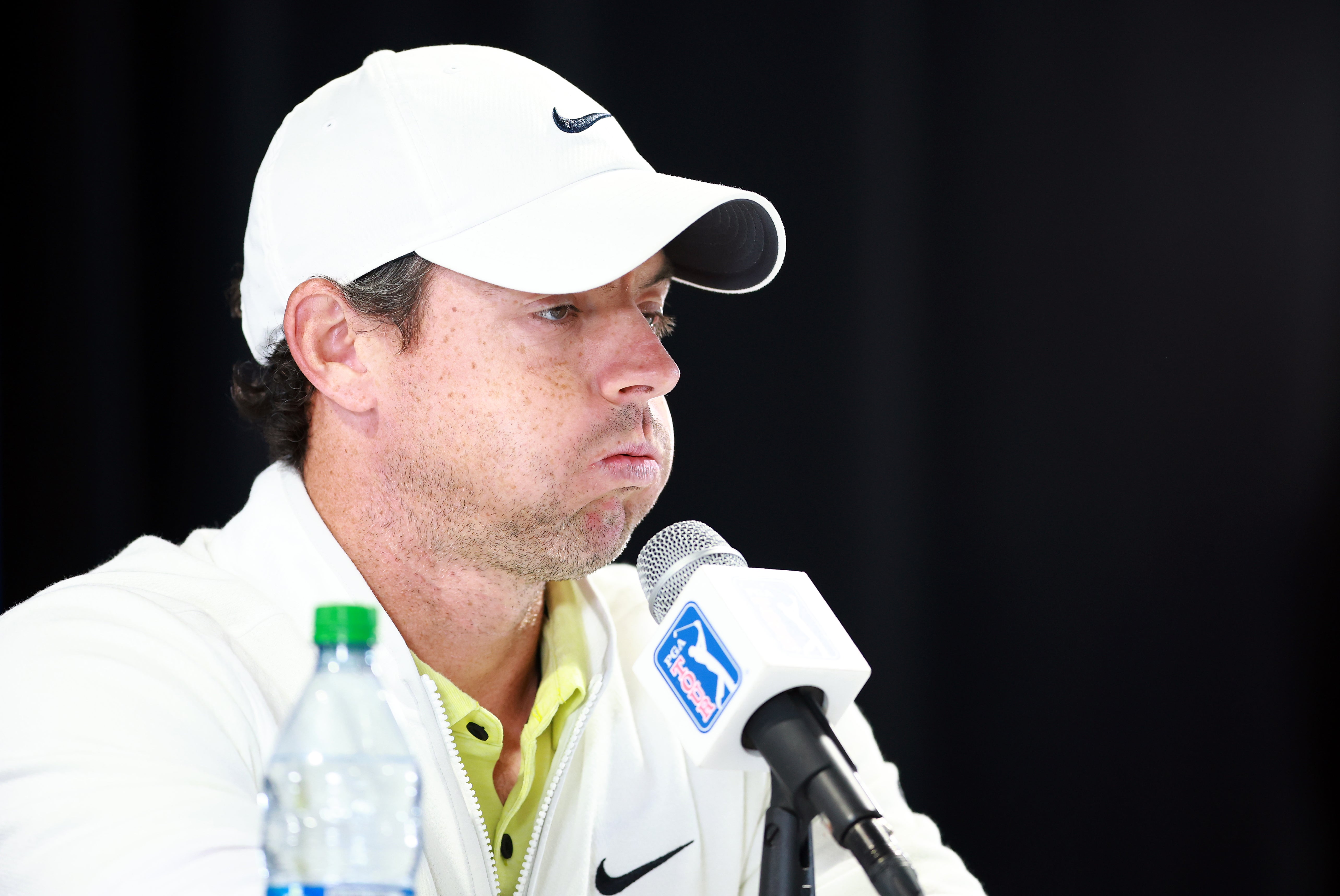Today golf, tomorrow the world: Why Saudi Arabia has its eyes set on owning every sporting prize
Armed with barrowloads of cash, but scant interest in balls or rackets, the Saudis won’t stop until they’ve conquered every sporting continent, says Jim White


It is not often we can say this about a pastime generally dismissed as the epitome of conservatism, but this week, golf gave us all a glimpse of the future. When the DP World Tour and the Professional Golfers’ Association, the two presiding institutions of the professional game, announced a merger with the Saudi-backed LIV Tour, it was a seismic moment. Because, make no mistake, for all the talk of partnership and conglomeration, this was a takeover. Professional golf, a sport reckoned to have more than 450 million fans across the globe, has just become the property of the Saudis.
The thing is, it will not be the last. This is a nation on an unabashed sporting campaign. Not to win things, or top medal tables. But to own sport. All sport. Golf, football, boxing, tennis, Formula One: along with their neighbours in Qatar and Abu Dhabi, they have their eyes on everything.
And what the Saudis have demonstrated in their sudden and comprehensive buyout of golf is that they properly understand the fundamental mechanics of international sport. Because in sport, what talks loudest and most persuasively is money. The Saudis come armed with an awful lot of the stuff.
Initially they tried to do their own thing with golf, hoovering up some of the best talent on wages that would turn Croesus dollar-bill green with envy. But they soon appreciated, as the traditional organising bodies threatened boycotts and stand-offs to protect their properties, that the easiest way to get their hands on the top events was to wheel a barrowload of cash into the negotiations. At which point principle, history and heritage were quickly jettisoned. The Masters, the Open, the Ryder Cup: all were apparently available to the highest bidder.
Golf is not the first to fall. Heavyweight title fights are no longer staged in Washington Square Gardens or the Royal Albert Hall, pugilism’s traditional venues; they are held in Jeddah. Tennis now takes a detour through Saudi, delivering lucrative events from the desert. Formula One, never afraid of a dangled dollar, now stages three of its annual races in the Gulf. And that is without even mentioning the World Cup, or Manchester City, or Paris St-Germain, or any of the other parts of the Gulf’s burgeoning sporting portfolio.
So why are they doing it? What is it that propels the governments of societies that have little cultural history with rackets or balls to take such a compelling interest? It is certainly not because they want to win everything. True, huge amounts of money have been spent in Saudi establishing universities to train engineers and develop design talent, gearing up to the creation of a Formula One team. But when Qatar staged the World Cup, it was not in the hope of lifting the trophy. Or at least, given how hopeless their team was when they hosted the tournament, you hope not.
Nor are the locals particularly interested in even watching sport. When Qatar played Ecuador in the opening game last November, the organising committee was obliged to hire in thousands of supporters from Lebanon to give the impression of fervent backing. But then, they didn’t need to win the thing: Lionel Messi, the man who did, long ago became an employee of the Qatari state and an ambassador for the Saudi tourist authority.
The usual assumption when trying to identify the purpose of all this investment is that the Gulf’s mediaeval theocracies are seeking to use sport as a reputational launderette.
Actually, sportswashing is not the priority. What is going on in this middle eastern sporting arms race is a lot more straightforward. When Mohammed Bin Salman initiated the Saudi Vision 2030 initiative, the idea was to ready the country’s economy for the rapid arrival of a time when oil was no longer a valued commodity. That future would embrace not just 10-mile-long corridor cities, not just vast investment in solar energy, but international sport.
The idea was to turn the Gulf into the heartland of world athletic competition, the venue of choice for any tournament, with state-of-the-art facilities cooled by hosepipes of cash. Though clearly they cannot move the Masters golf from Augusta to Jeddah, do not put it past them soon to stage one of Newcastle United’s home Premier League games in a swanky new stadium where currently there is only sand.
But then, even when the sport is taking place elsewhere, they can use it as a platform to project their purpose. They want to turn their nation into a leisure destination, their airports the stopover of choice for travellers en route to elsewhere. With their association with sport will come endless reminders of the beauty of the desert, of the guaranteed winter sun: come to the Gulf for your holiday (or your “mini-retirement”, as Gary Neville, one of many spokespeople on the Qatari payroll, would put it). You can even watch a bit of world-class sport while you’re there. That is the real consequence of this week’s golfing shenanigans: the sporting future is Saudi.



Join our commenting forum
Join thought-provoking conversations, follow other Independent readers and see their replies
Comments